
Atlantic Recording Corporation is an American record label founded in October 1947 by Ahmet Ertegun and Herb Abramson. Over the course of its first two decades, starting from the release of its first recordings in January 1948, Atlantic earned a reputation as one of the most important American labels, specializing in jazz, R&B, and soul by Aretha Franklin, Ray Charles, Wilson Pickett, Sam and Dave, Ruth Brown and Otis Redding. Its position was greatly improved by its distribution deal with Stax. In 1967, Atlantic became a wholly owned subsidiary of Warner Bros.-Seven Arts, now the Warner Music Group, and expanded into rock and pop music with releases by Crosby, Stills, Nash & Young, Led Zeppelin, and Yes.

The Coasters are an American rhythm and blues/rock and roll vocal group who had a string of hits in the late 1950s. With hits including "Searchin'", "Young Blood", "Charlie Brown", "Poison Ivy", and "Yakety Yak", their most memorable songs were written by the songwriting and producing team of Leiber and Stoller. Although the Coasters originated outside of mainstream doo-wop, their records were so frequently imitated that they became an important part of the doo-wop legacy through the 1960s. In 1987, they were the first group inducted into the Rock and Roll Hall of Fame.
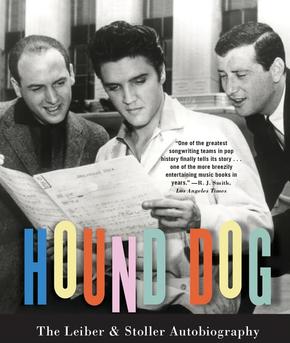
Leiber and Stoller were an American songwriting and record production duo, consisting of lyricist Jerome Leiber and composer Michael Stoller. As well as many R&B and pop hits, they wrote numerous standards for Broadway.

"Hound Dog" is a twelve-bar blues song written by Jerry Leiber and Mike Stoller. Recorded originally by Big Mama Thornton on August 13, 1952, in Los Angeles and released by Peacock Records in late February 1953, "Hound Dog" was Thornton's only hit record, selling over 500,000 copies, spending 14 weeks in the R&B charts, including seven weeks at number one. Thornton's recording of "Hound Dog" is listed as one of the Rock and Roll Hall of Fame's "500 Songs That Shaped Rock and Roll", ranked at 318 in the 2021 iteration of Rolling Stone's 500 Greatest Songs of All Time and was inducted into the Grammy Hall of Fame in February 2013.

The Spencer Davis Group were a British blues and R&B influenced rock band formed in Birmingham in 1963 by Spencer Davis (guitar), brothers Steve Winwood and Muff Winwood, and Pete York (drums). Their best known songs include the UK No. 1 hits "Keep On Running" and "Somebody Help Me" and the UK and US Top 10 hits "Gimme Some Lovin'" and "I'm a Man".
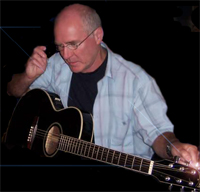
Raymond John Fenwick was an English guitarist and session musician, best known for his work in The Syndicats and in The Spencer Davis Group in the 1960s, and as the lead guitarist of Ian Gillan's post-Deep Purple solo project, the Ian Gillan Band.

Down by the Jetty is the debut album by English rock band Dr. Feelgood, released in January 1975.
"Chapel of Love" is a song written by Jeff Barry, Ellie Greenwich and Phil Spector, and made famous by The Dixie Cups in 1964, spending three weeks at number one on the Billboard Hot 100. The song tells of the happiness and excitement the narrator feels on her wedding day, for she and her love are going to the "chapel of love", and "[they'll] never be lonely anymore." Many other artists have recorded the song.
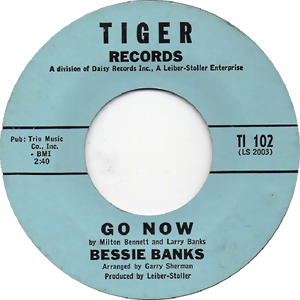
"Go Now" is a song composed by Larry Banks and Milton Bennett and first recorded by Bessie Banks, released as a single in January 1964. The best-known version was recorded by the Moody Blues and released the same year.
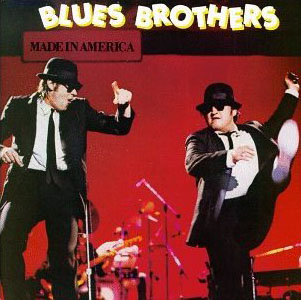
Made in America is the third album by The Blues Brothers. The second live album by the band, it was released in December 1980 as a followup to their hit film released that year, The Blues Brothers. To support the film, the band embarked on a 22 dates tour in North America, culminating with seven dates at the Universal Amphitheater in Los Angeles. Keyboardist and musical director Paul Shaffer, sax player Tom Scott and drummer Steve Jordan, who were absent in the film and the soundtrack due to scheduling conflicts, reprised their roles as full-fledged band members. Drummer Willie Hall was let go but the band decided to retain Murphy Dunne, who had replaced Shaffer in the film, as additional keyboards player. Session man Jeff Mironov was brought in to provide additional guitar for the record.
"Three Cool Cats" is a 1958 song written by Jerry Leiber and Mike Stoller. It was originally recorded by the Coasters and released as the B-side of their hit single, "Charlie Brown".

The Horrors is the debut EP by English rock band the Horrors, released on 24 October 2006 by record label Stolen Transmission. It consists of the A- and B-sides to the two singles previously released by the band: "Death at the Chapel" and "Sheena Is a Parasite".

"Poison Ivy" is a popular song by American songwriting duo Jerry Leiber and Mike Stoller. It was originally recorded by the Coasters in 1959. It went to No.1 on the R&B chart, No.7 on the Billboard Hot 100 chart, and No.15 in the UK. This was their third top-ten hit of that year following "Charlie Brown" and "Along Came Jones".

Framed is the 1972 debut album by The Sensational Alex Harvey Band. The title track is a cover of a Leiber and Stoller song originally recorded by The Robins. Other tracks include a cover of the Willie Dixon song "I Just Want to Make Love to You", originally performed by Muddy Waters. Both of these songs had appeared on Alex Harvey recordings as far back as the 1963 live recording from Hamburg, released in 1964 as "Alex Harvey and His Soul Band". "Hammer Song" and "Midnight Moses" are two Harvey originals that first appeared on his solo LP Roman Wall Blues in 1969. "Hole In Her Stocking" had been recorded by Alex Harvey in 1970 on the Rock Workshop eponymous release of the same year.

English Freakbeat, Volume 2 is a compilation album in the English Freakbeat series, featuring recordings that were released decades earlier, in the mid-1960s.
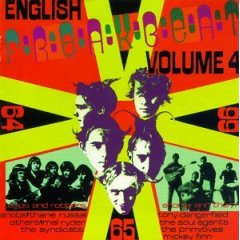
English Freakbeat, Volume 4 is a compilation album in the English Freakbeat series, featuring recordings that were released decades earlier, in the mid-1960s.

Here We à Go Go Again! is Johnny Rivers's second official album, and like his first album, At the Whisky à Go Go, it was recorded live at the Whisky a Go Go in Los Angeles, California. The album was on the Billboard Charts for 23 weeks and reached #38 on December 12, 1964. The album spawned two hit singles: "Maybellene", #12 on the Billboard Hot 100, and "Midnight Special", #20 in 1965.

All the Way is the fifth studio album by American singer Brenda Lee. The album was released August 7, 1961, on Decca Records and was produced by Owen Bradley. It was the second of two studio albums released by Brenda Lee in 1961 and spawned the single "Dum Dum", which became a Top 10 hit on the Billboard Hot 100, and a UK single "Speak to Me Pretty", which reached No.3 on the UK singles chart.
Steve Howe is an English guitarist, active since 1964. He is best known for his tenures with the rock groups Yes and Asia, including his solo albums.

Don't Stop Me Now! is the eleventh studio album by Cliff Richard, released in 1967. It is his twentieth album overall. The album was arranged and conducted by Mike Leander.
















